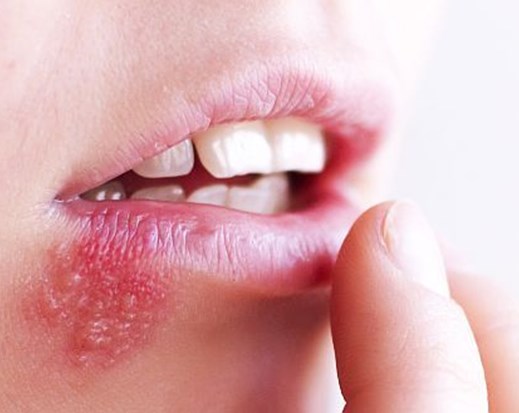



Herpes is a viral infection, and herpes simplex virus can infect any area of the body, but the lips and genitals are among the most commonly infected places with the virus. It affects different ages, and people with weakened immune systems may experience repeated herpes and progressively inflamed sores, taking weeks to heal.
What infections are caused by the herpes viruses?
Oral and genital herpes
chickenpox
shingles
Cytomegalovirus (CMV) infection
What are herpes symptoms?
Fever and body pain
Swelling of the lymph nodes
Painful and repetitive sores
Itching around the mouth or genital area
Appearance of blisters or sores
Sore throat
How is the disease transmitted?
Through sneeze spray and cough
Use personal tools such as a toothbrush or food tools for an infected person
Contact with injured skin, such as kissing or having sex
In rare cases, from mother to child during childbirth
The virus is not transmitted through the use of public toilets, swimming pools, or bedding
Herpes treatment?
There is no drug to treat herpes, but antiviral medications are used to reduce the duration and severity of symptoms, and medicines such as acetaminophen or ibuprofen are used to reduce fever and pain. The patient may need to use corticosteroids if the tonsils are swollen, and the doctor often asks the patient to rest for a week or two.
Prevention
Receiving the chickenpox vaccine and the Herpes zoster vaccine
Wear loose clothes
Wash hands thoroughly
Use a cotton piece to put medication on sores
Avoid any sexual activity during the period of illness
Put Ice on sores
Avoid scratching pimples
Visit the ophthalmologist or the ear specialist if the herpes zoster is near the eye or ear
10. Stay at home until all bubbles flake
When do you need to visit a doctor?
Head to your doctor directly if you still have pain after the herpes has gone.